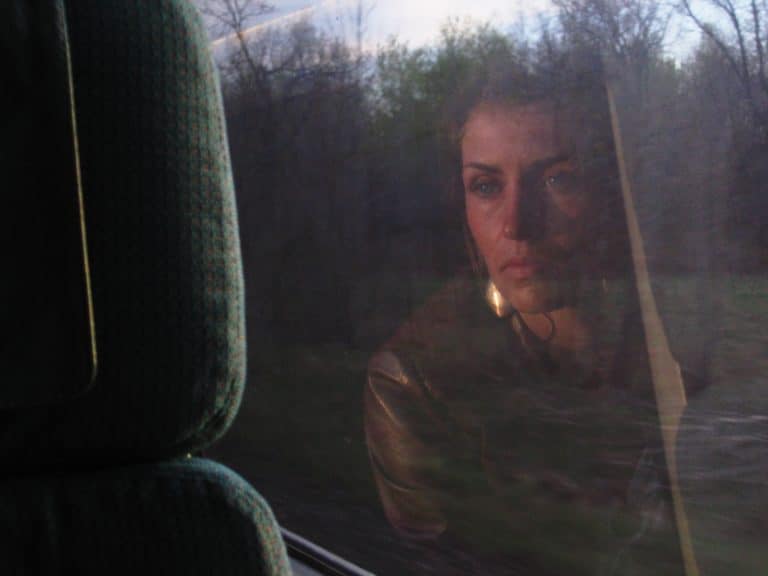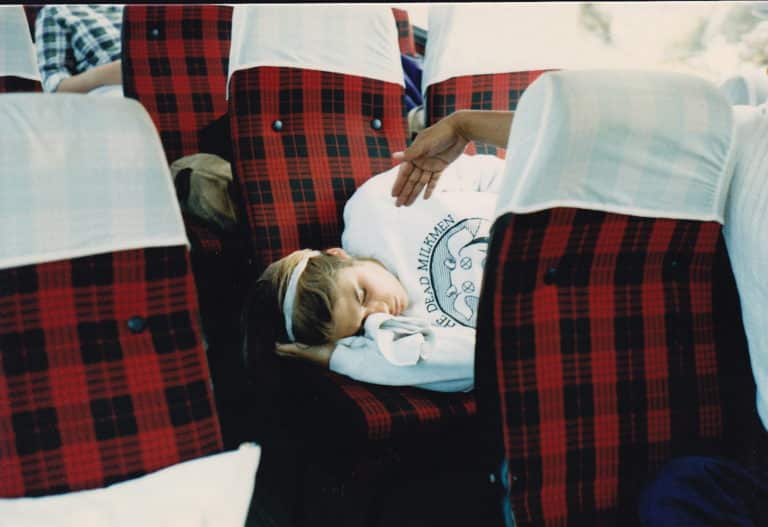
Image by Simon Law/Flickr (CC BY-SA 2.0)..
A Little Compartmentalization Is a Life-Sustaining Thing
I’m a super fan of integration.
When people say “work/life balance,” I’m always struck, not just by how useless I find the concept of balance, but also how irrelevant that stubborn little slash mark is to how I live my life. So many of my best friends, even my husband, are my collaborators. I am lucky enough to only do work that feels like a genuine, if not perfect, expression of my values and gifts. My work is part of my life and my life is defined by, among many things, my work. No slashes necessary.
I sit on the board of an organization, The Center for Courage & Renewal, whose mission is to help people align their “soul and role,” in Parker Palmer’s parlance. I think that men have as much as women to gain from feminism, in part, because they often lead such divided lives under the long, stubborn influence of patriarchy; if feminism wins, men get to play poker with the dudes and call them out on their inappropriate jokes, all in the same whiskey-tinged breath.
So a belief in the power of living as a whole person is foundational to my life. Yet, I’ve been thinking a lot lately about the benefits of compartmentalization.
This first started to show up for me when I began mentoring up-and-coming journalists. Someone with a wonderful opinion piece, for example, would send it off to an editor at my recommendation, and then 12 hours later, he would text me: “What do you think it means that we haven’t heard back yet?”
My answer: nothing. Or, more accurately, anything. It could mean that the editor is inundated with emails and hasn’t even opened this one yet. It could mean she has opened it and is obsessed with it, but is waiting to hear back from a higher up with the green light so she can communicate as much. It could mean that she’s dropped dead, or more likely, moved on to another publication. The only thing we know for sure: it does the eager journalist no good to obsess about what is happening on the other end of that “tube.”
I didn’t even realize how good I’d gotten at this until I had to teach it to other people. When I hit send on a pitch to an editor, turns out, I unconsciously banish that possibility into the craggy, unreachable regions of my brain. It’s like Tiger’s Nest — a monastery 10,000 feet above sea level in Bhutan that you have to hike up to on treacherous roads, named one of the hardest places to get to on Earth. That’s where I put all of my dear ideas awaiting champions.

I’m guessing that I wasn’t built this way, but that I developed this coping mechanism over a decade of being rejected or, worst case scenario, weathering the email black hole that plagues so many freelance journalists just starting out. If you want to survive as a creative person, I think it really helps to have your own personal Tiger’s Nest, a place that is so remote that you forget to go there until it’s absolutely necessary.
More recently, I’ve noticed that my capacity to compartmentalize may be the only way I will survive working motherhood. Last month, I was away from my 19-month-old daughter more than I would have liked. Everything I was doing while away from her was worthwhile: thrilling intellectual work, beautiful travels, inspiring collaborators. And yet, I was away from my girl. I missed the sweaty smell of the top of her head after she’s been running through the garden looking for strawberries to pop into her mouth. I missed watching her get very, very serious about the weirdest, little things. I even missed her waking me up at night.
But I didn’t Facetime with her. I tried that once and we both ended up sobbing on either end of the phone. I looked at pictures rarely and intentionally, in moments where I knew that if my heart cracked open and I couldn’t quite stitch it back together again, I’d be okay to take some time alone. I talked about her with people, always happy to acknowledge my evolving role as new mother, but was also relieved when it didn’t come up.
I notice something else: every time I’m on my way back to her, I get a little bit crazy. I want to fly the plane myself so I can get it to San Francisco International Airport just a little bit faster. I have a hard time communicating, as if the language centers of my brain have been taken over by my desire to be near that little body again. I pity the fool that stands between me and my baby when I’m headed home. Ironically, as I get closer and closer to her, the distance hits me harder and harder.
Of course too much compartmentalization is dangerous. I understand that. I don’t want to get so unattached to my creative efforts that I can’t admit when I care or am crushed by a rejection. I want to put a variety of precious eggs in different baskets and hope for the absolute best to hatch from a few. I don’t want to get “good” at being away from my daughter. I want to be fully present when I’m with her, reveling in who she is becoming, and really enjoy my work when I’m not with her, honoring who I was long before she arrived and who I’m becoming as I’m shaped and shifted by motherhood.
Turns out that a little bit of compartmentalization helps me sustain a life of creative vulnerability and resilience, mothering and traveling. Being a little divided along the way makes it possible for me to live a whole life in the end.

